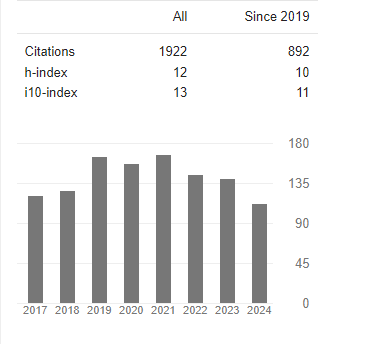Trade Liberalization and Performance of Nigeria Economic Growth (1990-2022) an Empirical Study
Abstract
Peter Ayodeji Adeoye
The association between trade liberalization and economic growth in Nigeria was examined in this study from 1990 to 2022. The study used the Autoregressive Distributed Lag Bounds technique for cointegration. Yearly data were sourced from the World Bank Development Indicator (WDI). This research work considers Gross Domestic Product Per Capita (GDPPC) as the dependent variable, while inflation rate (INF), trade openness (TOPEN), Gross capital formation (GCF), and foreign direct investment (FDI) as the independent variable. Based on the ARDL approach, the test was carried out on each dependent variable and the independent variable to check the long and short-run regression findings for the coefficient of the lagged values of the dependent and independent variables. Some diagnostic test like the serial correlation test, and stability test were also carried out on the variables. From the results obtained Trade openness is positively statistically significant in the short run and the long run. However, the inflation rate is statistically but negatively significant to GDP in the short run and the long run. This means that when there is increased inflation, it reduces the GDPPC growth rate. Based on the findings, it was recommended that the government should set up policies that will encourage trade openness, and trade liberalization to other advanced and developed countries to also develop our own country.



